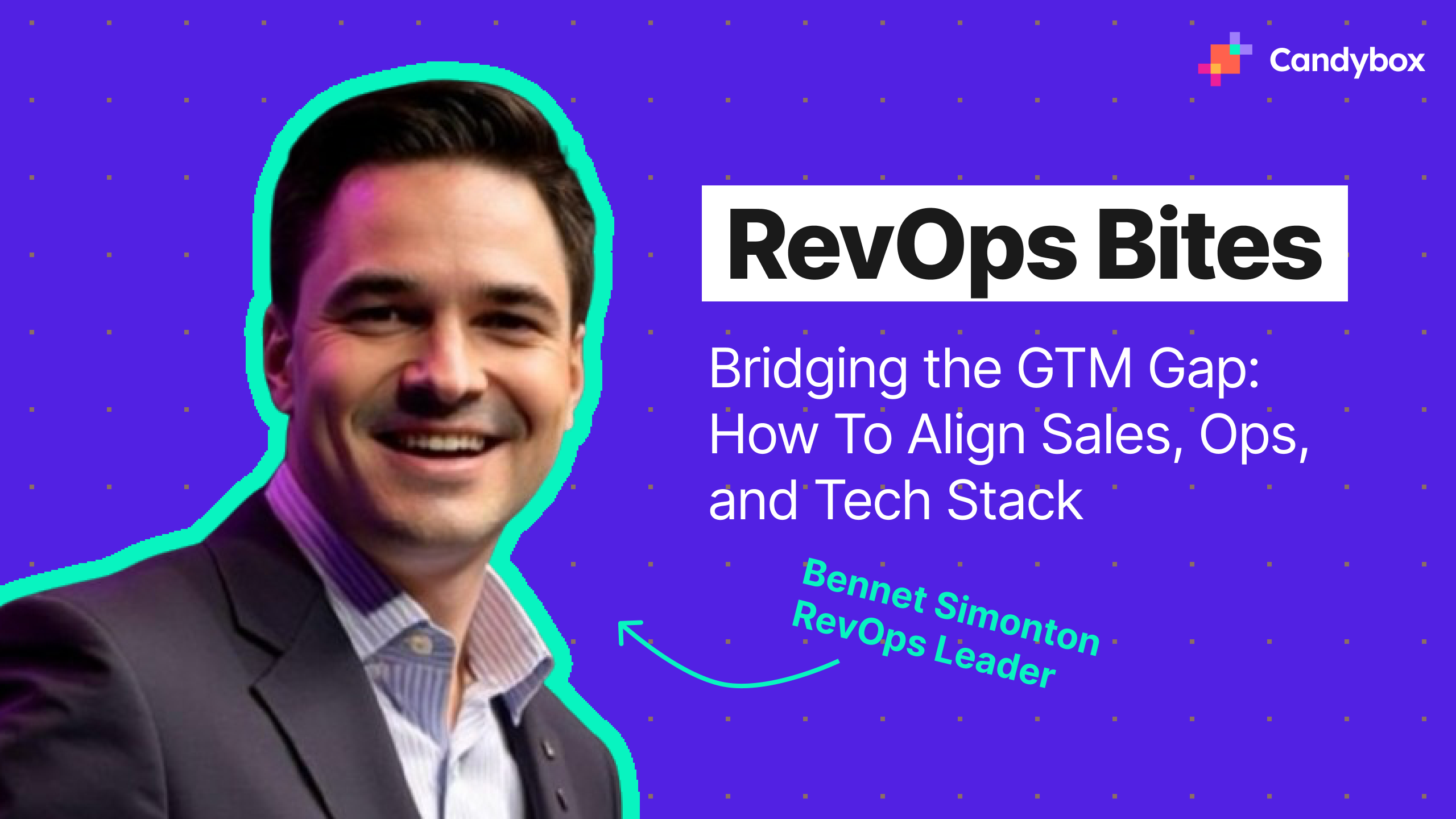CPQ Solutions for SaaS Growth Businesses Using Salesforce
As SaaS businesses scale, managing complex pricing models and streamlining the sales process becomes increasingly challenging. This is where CPQ (Configure, Price, Quote) solutions come into play. CPQ software solutions help sales teams improve sales efficiency and manage complex sales processes by automating product configuration, pricing, and quote generation.
With a variety of Salesforce CPQ tools and third-party platforms available, choosing the right one can significantly impact your ability to close deals faster, maintain data accuracy, and enhance customer satisfaction. In this guide, we'll explore some of the top CPQ solutions for SaaS companies, comparing their features and how they can help growth-stage tech businesses optimize their quoting process. For SaaS companies, the best CPQ system will adapt to their processes and needs, and be a true engine of business growth.
Whether you're looking for advanced customization, seamless CRM integrations, or user-friendly interfaces, this resource is designed to help you make an informed decision. We're not playing favorites, but there definitely are the right CPQ solutions, and the wrong CPQ solutions; and it mostly depends on the core features your org needs to function smoothly.
Unsure if you need CPQ at all? This 2 min. survey will help you figure it out:
👉 CPQ Assessment
Decision Criteria: How to Choose the Right CPQ Tool
Choosing a CPQ for your SaaS org isn't just about picking the most popular option. It's about selecting a solution that aligns with your sales motion, product complexity, internal resources, and growth stage.
If you're coming from Salesforce CPQ (which is now officially end-of-sale), this decision takes on a new layer of urgency, but a rushed move isn't the right next step. At Candybox, we've helped dozens of SaaS companies determine what the next step is for their CPQ needs.
Here's what to consider before committing to a new CPQ platform:
CPQ Decision Criteria for SaaS Teams
Quoting Requirements
Are reps wasting time stitching together quotes manually? Do you need guided selling to align SKUs with use cases, dynamic bundling for modular features, or just a clean way to support volume- or tier-based pricing?
Product & Packaging Complexity
Are you selling one core product with add-ons, or managing multiple SKUs across plans, features, and usage tiers? Do you need to support hybrid models like flat-rate + usage? or PLG motions with self-serve upgrades?
Approval & Discounting Logic
Are discount approvals slowing down deals? Do you have clear rules by segment, region, or rep level, or is every deal a custom conversation that lives in Slack threads and email chains?
Renewals, Upgrades & Co-Terms
Can your current process handle complex SaaS renewals, like co-terms, multi-year contracts, or mid-cycle expansions? Or is ops cleaning up the mess after deals close?
GTM Stack Compatibility
Does the tool need to sync cleanly with Salesforce, your billing system (e.g., Stripe, Netsuite, Chargebee), and subscription analytics? Can it support attribution and forecasting tied to SaaS metrics?
Team Capacity & Ownership
Do you have a RevOps or Salesforce admin team to maintain rules and workflows? Or do you need something lightweight that GTM leaders or founders can manage without writing Apex?
Something to keep in mind is that CPQ is a strategic investment. It's not just about quoting, it impacts billing, forecasting, data integrity, and the overall buyer experience.

Salesforce Native CPQ Tools for SaaS Companies
These CPQ solutions are built directly on the Salesforce platform. They live inside your Salesforce org, use the native data model, and offer seamless integration with CRM and ERP systems, enhancing operational efficiency for SaaS orgs already embedded in the Salesforce ecosystem.
Kugamon
Pros:
- Built on Salesforce: As a native Salesforce app, Kugamon removes integration hurdles and offers a fully unified user experience.
- Comprehensive Billing and Invoicing: Handles invoicing, billing schedules, automated renewals, and contract management, which is ideal for recurring revenue SaaS models.
- Advanced Reporting: Deep analytics and reporting directly within Salesforce for better revenue and sales insights.
- Configurable Pricing Rules: Supports volume-based, tiered, and custom pricing to match diverse SaaS sales needs, and automates pricing for complex SaaS models.
Salesforce CPQ (Revenue Cloud)
Pros:
- Deep Integration with Salesforce: Utilizes Salesforce's full functionality, including AI-powered insights and customer data access.
- Advanced Configuration: Handles complex bundling and multi-tiered SaaS pricing with ease, while supporting dynamic pricing capabilities, and real-time pricing to help sales representatives maximize deal size and maintain competitiveness.
- Automated Approvals and Discounting: Built-in workflows for faster, compliant quote approvals, including advanced approval workflows that streamline complex deal approval processes for the sales team.
- Configurable Pricing Rules: Supports complex pricing rules and enables businesses to manage complex pricing structures, such as tiered, usage-based, or custom models, ensuring accurate and flexible quoting.
- Sales Analytics: Native dashboards to track deal velocity, quote efficiency, and sales pipeline performance.
Nue
Pros:
- Strong Support for SaaS Pricing: Built for subscription, usage-based, hybrid, and advanced pricing models, supporting a wide range of SaaS pricing strategies including subscription based pricing models and usage based pricing.
- Unified Quote-to-Revenue Platform: Covers the full process from quoting to billing and revenue recognition.
- Fast Implementation: Easy to implement CPQ software for SaaS pricing models with deployment in as little as 6 weeks with flexible configuration options.
- Scalable Architecture: Designed for evolving GTM strategies and rapid experimentation.
Salesforce-Integrated (Non-Native) CPQ Tools
These platforms are not Salesforce-native, but integrate tightly via APIs and apps. Many offer seamless integrations and robust integration capabilities with existing CRM systems, enabling CPQ software to integrate with sales channels, sales and finance teams, and other enterprise tools for improved workflow efficiency. Many offer advanced features and sleek UIs tailored to subscription and SaaS sales models.
DealHub
Pros:
- Guided Selling Playbooks: Help reps build accurate quotes through a structured, scalable flow, supporting complex product configurations and complex products.
- Support for SaaS Pricing: Subscription, usage-based, and hybrid models are fully supported, including the ability to handle complex pricing structures.
- Cross-CRM Integration: Works with Salesforce, HubSpot, and others.
- Digital DealRoom: Collaborate with prospects, share documents, and close faster, helping sales teams spend more time selling and facilitating collaboration between sales and finance teams.
- Automated Approvals: Smart workflows eliminate bottlenecks in sales operations.
PandaDoc
Pros:
- Strong Salesforce Integration & UI: Create and manage quotes without leaving your CRM.
- Built-In E-Signature: Accelerates deal closure with legally compliant signature workflows.
- Engaging Quote Templates: Embed media, pricing options, and custom content in quotes.
- Real-Time Alerts: Get notified when prospects open or engage with your documents, helping sales representatives track sales performance and enhance customer relationships.
Salesbricks
Pros:
- Strong Salesforce Integration: Real-time data syncing to reduce manual updates and errors.
- Built for SaaS: Ideal for usage-based billing, discounting, and tiered pricing models.
- Custom Workflows: Adaptable approval processes to match your sales strategy, with sales automation features that enable sales teams to streamline quoting, approvals, and deal closures.
- Intuitive UI: Easy-to-use interface reduces training time and supports sales reps by streamlining product configuration and managing complex product configurations for faster, more accurate quotes.
Subskribe
Pros:
- End-to-End Subscription Management: From onboarding to renewals, it's built for SaaS lifecycle complexity, including automated renewals and integrated contract management to streamline processes.
- Smooth Salesforce Integration: Syncs quote-to-invoice data without manual handoffs, improving operational efficiency and enhancing customer experience.
- Usage-Based Billing Support: Great for SaaS companies with metered or flexible billing.
- Customizable Rules: Tailor discounting and approvals without compromising on compliance, while addressing customer needs and customer preferences for greater satisfaction.
Pros and Cons of Salesforce Native vs. Non-Native
Native Salesforce CPQ Tools
- Unified Data Model: No need for syncs: everything lives inside Salesforce.
- Streamlined UX: Reps work entirely within Salesforce.
- Simplified Security: Inherits Salesforce permissions and compliance controls.
- Fast Setup for Salesforce Orgs: Especially for teams already using Salesforce extensively.
- Deep Workflow Automation: Use flows, process builders, and triggers without external apps.
Non-Native CPQ Tools
- Modern, Flexible UI: Often easier to use and more intuitive than native apps.
- Faster Feature Development: Vendors can push updates outside of Salesforce release cycles.
- Cross-Platform Compatibility: Ideal if your stack includes multiple CRMs or ERPs, and especially suitable for engineering sectors that require integration across diverse systems.
- Purpose-Built for SaaS: Often tailored to specific subscription and pricing needs.
- Independent Performance: Can bypass Salesforce API limits and processing constraints.
What If We're Not Ready for CPQ Yet?
Rolling out CPQ is a big move not just in terms of budget, but in operational complexity. It changes how your teams quote, sell, renew, and forecast. If it's not scoped properly, CPQ can introduce friction, create technical debt, and slow down your GTM velocity.
The good news is you don't have to start there.
At Candybox, we work with SaaS companies every day to simplify quote-to-cash without overengineering it. Whether it's rebuilding your quoting logic inside Salesforce, automating approval workflows, or tightening your pricing operations; we help you get the benefits of CPQ without jumping straight into a full-blown implementation.
Sometimes, the right move is not to adopt CPQ right now, and it's to fix the foundation first.
If you're exploring CPQ alternatives or want to replicate key functionality without the extra tools, we've got you. We're Salesforce consultants with deep SaaS experience, and we're happy to chat. No pitch, just perspective.

.png)











